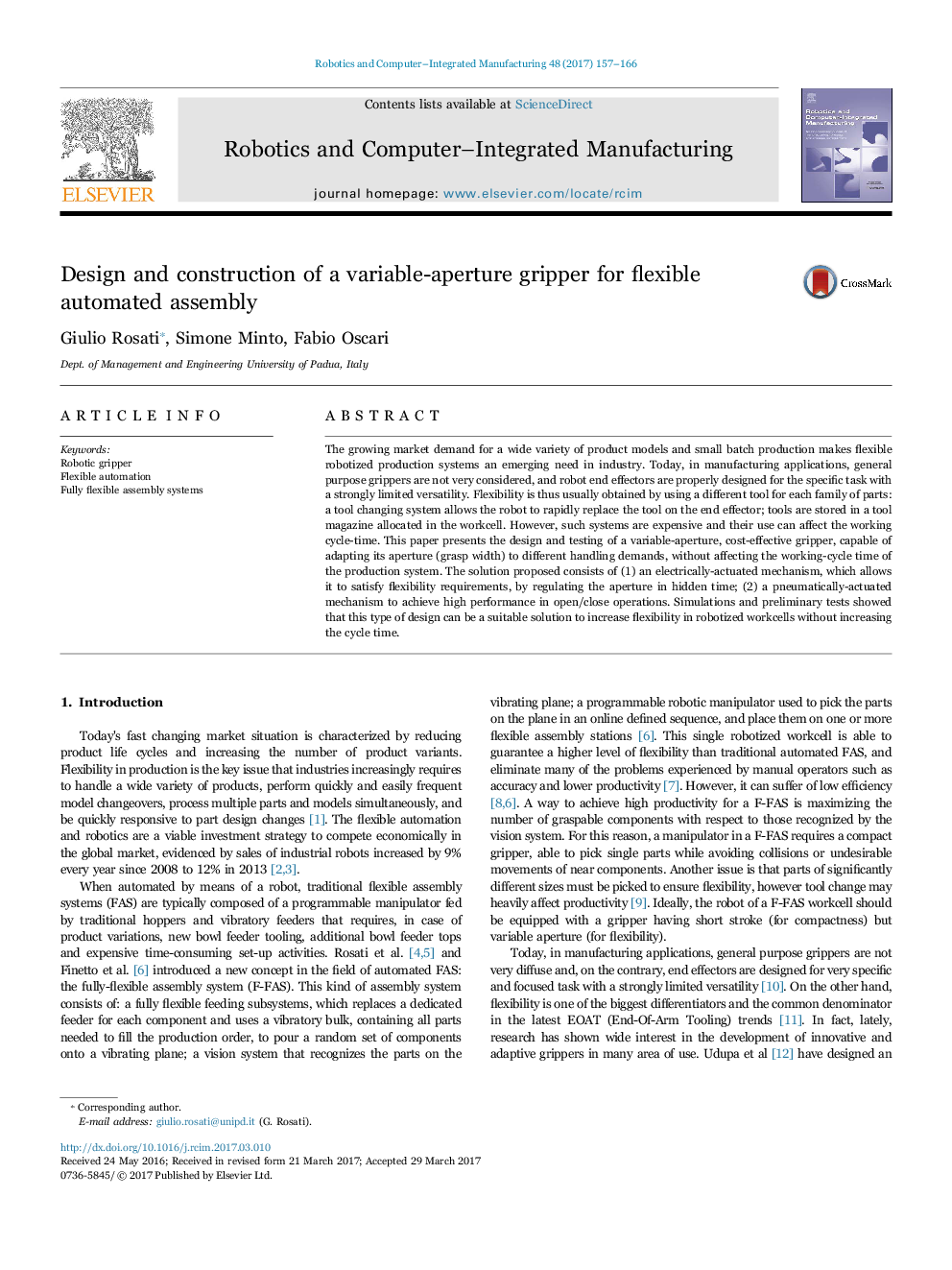ترجمه فارسی عنوان مقاله
طراحی و ساخت یک گیره متغیر دیافراگم برای مونتاژ اتوماتیک انعطاف پذیر
عنوان انگلیسی
Design and construction of a variable-aperture gripper for flexible automated assembly
| کد مقاله | سال انتشار | تعداد صفحات مقاله انگلیسی |
|---|---|---|
| 99996 | 2017 | 10 صفحه PDF |
منبع

Publisher : Elsevier - Science Direct (الزویر - ساینس دایرکت)
Journal : Robotics and Computer-Integrated Manufacturing, Volume 48, December 2017, Pages 157-166
ترجمه کلمات کلیدی
گیره روباتیک، اتوماسیون انعطاف پذیر، سیستم های مونتاژ کاملا انعطاف پذیر،
کلمات کلیدی انگلیسی
Robotic gripper; Flexible automation; Fully flexible assembly systems;

